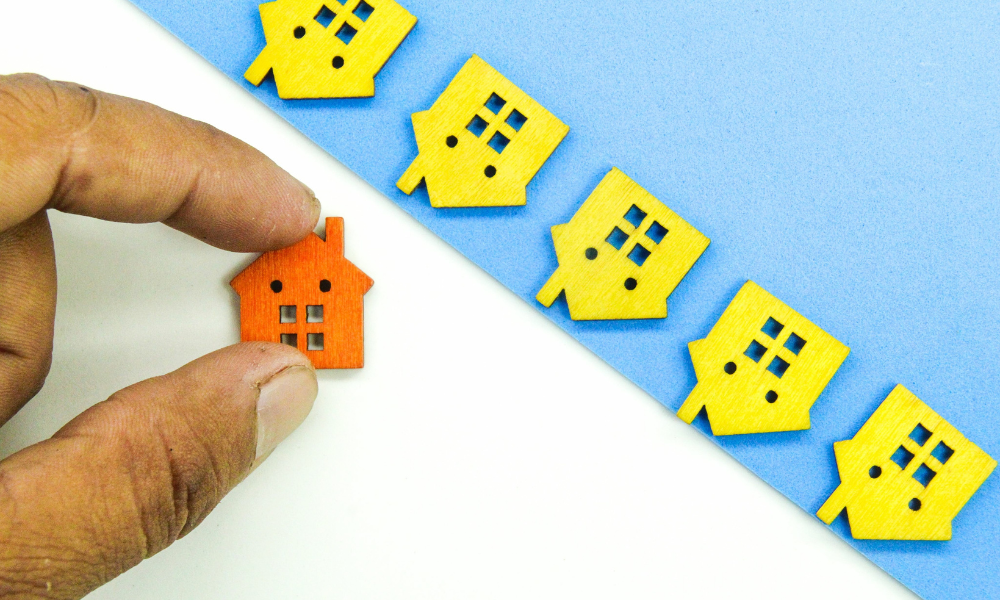Ron Butler says mom and pop investors facing bankruptcy, major losses on condo purchases

In the early 2010’s, the Toronto condo market was the place to be for individual investors looking to make a quick buck off a market that looked as though it would only continue to grow.
But even amid a national housing crisis felt acutely in the Toronto area, interest in small condos have plummeted in 2025, leaving investors with few options to sell a product that has not matched the needs of buyers, many of whom are families looking for spacious homes. According to the Toronto Real Estate Board, condo sales in the GTA have gone down by over 30 per cent in April 2025 compared to the same time last year, while prices have dropped by almost seven per cent.
Many of those who have been unable to offload their investment were “mom and pop” investors, who may not have had the financial wherewithal to understand the changing markets and demand according to Ron Butler, principal broker at Butler Mortgage. Butler says some entered the condo space because friends and family had previous success with this strategy, while others were told by realtors and real estate agents that rents would only continue to rise, only for rents to recently decrease. Many who purchased the condos a decade ago were able to sell their properties by assignment at lucrative amounts, making the market seem like an endless source of revenue without much effort from investors.
"They're almost exclusively people who had some success with it around ten years ago. It's also people whose close friends and relatives did well in the past and then told these people they were stupid not to get involved because it was a money maker,” he said. “You didn't even have to get a mortgage, you sold it before it closed by assignment. It's just like magic money.”
Butler suggests that these put options are much more complicated than advertised, and advised future investors to do their due diligence into an investment that provides no guarantees.
“They're just Mom and Pop investors. They're ordinary people, and if they have made $100,000 by magic, then they want to keep the magic coming,” he said. “If you’re buying a put on future real estate, you should be very, very careful.”
After such a decline in returns, Butler suggests rental property purchases have plummeted in the city. He says that options are limited for those who have been stuck with overvalued properties that are not seeing the same interest as expected. Butler notes one example of a client who purchased a condo for just over $1 million during COVID that is now laying empty, with its highest offer currently sitting at a paltry $650,000. He says the most likely scenario for this client is bankruptcy, with the builder seizing their deposits and suing for the rest of the purchase price.
“I've had two calls this week already that were their only real option was bankruptcy. It's impossible to fix this now that it's happened, it just has to play out,” he said. “Nobody is buying a rental property right now, everybody's scared. So we don't have to advise anybody. There's nobody to advise, there's only people want to buy properties to live in them.”
The flawed condo design is a result of investors giving little thought to the actual product, according to Butler, who says that investors did not see the condos as places to live, but purely as an investable asset which they hoped would only continue to grow.
“If everybody buying them is an investor, and nobody buying them plans on living there, then if you're an investor, you don't care if it’s a crap place. You just want somebody to rent it,” he said. “There's incredible number of people, tens of thousands of people, that made a severe pricing error, and now that's compounded by the fact that they mainly bought dog crate condos.”
The miniscule size of condos on the market – usually below 600 square feet – made them an undesirable place to live for families and long-term renters or buyers, Butler says. Many of the buildings also had “bad layouts, too many hallways, strange designs” according to Butler, who says the supply of these properties have far outstripped the demand.
“Because there's only renters in the building, and sometimes some of them are AirBnBs, you get a strange environment,” he said.
One of the key issues in this housing debacle is the city of Toronto’s loose regulation for condo sizing according to Butler, who argues the city prioritized density over properties desirable by families. He says the limited restrictions gave rise to the building of properties which no one would possibly want to live in.
“The City of Toronto's minimum for condominium build is, I think, 250 square feet. Now nobody actually builds that, but that just shows you how crazy it is. The city is willing for you to build condos that are actually rooming houses because they're so small. How do you even fit a bathroom and a bedroom in there?” he said. “As the City of Toronto, or Mississauga, why wouldn’t you stop and say, this seems really shitty, and nobody will ever raise a family there. So do we hate families now?”



